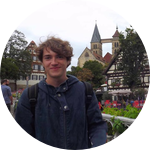About This Project
Temperature-sensitive reagents are common in biology labs, and often need to be stored in expensive ultra low temperature ULT refrigerators. This is one of the highest cost barriers to setting up a biology lab and makes research incredibly difficult in low resource settings. An enzyme cooler stored within a standard freezer can be a viable alternative. We plan to design, build, and test an open-source enzyme cooler that can be built for as little as $25 without sacrificing performance.
Ask the Scientists
Join The DiscussionWhat is the context of this research?
Many biology, health, climate and pollution research efforts require biologics like bacteria and enzymes to perform common wet lab research like genetic engineering or species identification. Many of these biologics are temperature sensitive. They cannot be stored in a regular fridge because of the defrost cycle where every day for about 40 minutes the freezer compartment is heated to 0 Celsius to remove the accumulated ice. An enzyme cooler is a thermos like device that uses cooling agents the can shield biologicals from the effect of the defrost cycle. This alternative has very low environmental impact compared to the Ultra-Low-Temperature-Freezers and is also useful for short term storage on the lab bench during experiments.
What is the significance of this project?
This project will make research affordable using a low cost solution to store temperature sensitive biologicals like enzymes or bacterial stubs. Stabs are used to store bacteria. They can be stored in the fridge for a week, in a freezer for up to 2 months or in a freezer inside an enzyme cooler for at least 6 months. For many enzymes, storing them in a normal freezer will inactivate (destroy) them in several days while the enzyme cooler should allow storage for years. ULTs are commonly used for storing enzymes yet not affordable in low resource settings. We will use inexpensive mass produced metal meal thermoses for the outer casing. We will reuse existing refrigeration agents from pharmacies and a custom molding technology to achieve the low cost. We found no enzyme cooler in open source.
What are the goals of the project?
We intend to make biology research more affordable by creating and sharing the design to a low-cost enzyme cooler that matches commercial enzyme cooler performance. The cooler will be designed to retain the temperature of the content within 4 Celsius of nominal temperature by using refrigerant agents in a chamber inside a thermos like device. We will validate performance of the open source cooler by comparing it side by side with a commercial enzyme cooler. We will monitor both internal temperature of the cooler over one week. We will also store e-coli, yeast and Bsa1 restriction enzyme in both coolers and test them after 3 months for their functionality and usability. We will also test the performance of the cooler for transportation and storage of these biologicals.
Budget
The project will use pre existing tools and a number of materials and components however extra resources including biologicals are required.
Endorsed by
 Project Timeline
Project Timeline
The major milestones are designing, prototyping and testing. Some of the critical parts involve a leak free rugged solution, identifying refrigeration agent,making the device and re-iterate design-make-test to find optimal solution. The other phase involves creating biologics for testing, start mechanical and functional testing and sending devices to independent labs for field testing. We expect to continue testing, reporting and improving docs based on feedback from participating labs.
Oct 17, 2023
Project Launched
Dec 15, 2023
Start design and create GitHub project.
Jan 05, 2024
Make molds for components. Identify refrigeration agent and create a data logger
Feb 15, 2024
Make the device and re-iterate design-make-test to find optimal solution. Create biologics for testing. Start mechanical and functional testing
Mar 01, 2024
send devices to external labs for independent testing
Meet the Team
Affiliates
Team Bio
Several community and University labs in Montreal, Ottawa, Mexico CIty and New York)have been identified as candidates for independent testing and already contacted.
This project requires expertise in molecular biology, electronics, mechanics (CAD design), molding, computers and DIY. Except for molding technologies, Adrian possesses all this experience as highlighted above. Geoff has deep expertise in plastic molding and mechanic design as he owned a company making fiberglass boats.
Adrian Filips
Adrian is passionate and committed to multidisciplinary Open Source research projects that can make a difference in today's world. He believes in open, inclusive citizen science because the currently allocated resources are not sufficient to tackle current challenges. Adrian is a firm believer in the power of science to solve world problems.
He has a multidisciplinary background with experience and high education in engineering, computers and molecular biology.
He can model and create Fusion360 add-ins, operate a CNC, a laser cutter, design and populate a dedicated PCB, code a micro-controller or the cloud, pour a gel, program an Opentron, design a primer, in-silico design, align sequences, create derivative plasmids stare at DNA sequences for hours to name some of his skills.
As part of his passion and convictions he designed, built, tested and used a significant number of low cost, open source, essential molecular biology devices.
He participated in research with the Children Medical Research Institute in Sydney. One of the projects where he designed/implemented a new procedure for producing new DNA sequences for transduction drug delivery is published at https://doi.org/10.1016/j.omtm.2018.10.016
He started the Ottawa Bio Science community bio and participated and presented participated in several Biosummits organized by the Canadian Health Department, MIT and JOGL. He is an active member in several relevant organizations dedicated for promotion of open science like GOSH, Helpful Engineering, JOGL, Global Community Biosummit etc.
Currently he works for Environment and Climate Change Canada.
Geoffrey Dobbsa
Geoff is an aerospace Mechanical Engineering Manager responsible for many innovative solutions in aircraft, spacecraft, fibre optic components and gasification of domestic garbage. Named inventor on several patents.
Many years experience in building and testing new concepts.
Former co-owner of a sailing boat manufacturer that produced boats using several plastic/resin molding technologies.
David J. Castillo
Biomedical researcher with extensive experience in the Biophysics of nanomotors, and nanotechnology applications in soft matter. Specialist in molecular microbiology tools and single particle analysis (genomics, molecular biology, optical microscopy, biochemistry, protein engineering, and plant development. Trained undergraduates, graduate students, and postdocs in several scientific research institutions in Mexico, USA, Germany, and Japan, (UNAM, Arizona State University, Max Planck Institute, Osaka University, and Waseda University).
External analyst for environmental assessment in urban ecosystems using multispectral images on UAVs (drones) designed remotely operated biosensors and integration into GIS for environmental modeling, in collaboration with NGOs, civil organizations, and local governments and Environment Secretariats (SEDEMA, CONAFOR, PAOT).
GLYXON Biolabs DIY Biospace for biomaterials. Founder and director
Glyxon Biolabs studies micro-algae, plants, and bacterial models to explore further strategies of atmospheric CO2 sequestration and biopolymers biosynthesis by combining biotechnological approaches and computer-based simulations of ecological dynamics of planktonic ecosystems and bacterial consortia. Our interests include microfluidics; 3D printing cell cultures; biopolymers biosynthetic pathways; simulation of genetic chassis circuits; gene editing and protein engineering in bacterial models and plants; Lab automation using microcontrollers and tailored integrated circuits.
Former Research Scientist at Arizona State University, Biodesign Institute's Center or Mechanism of Evolution, studying single-cell mechanotransduction in bacterial models involved in motility and molecular nanomotors.
He is back in Mexico City, working as director and lead researcher at Glyxon Biolabs, focused in modulation of cell differentiation in unicellular organisms using bacteria, algae and plants.
Additional Information
The main goal of the project is to offer a low cost alternative that allows for enzyme storage and transportation for the research community. The low cost will be achieved by using simpler materials and technologies and an open source the design. The price of commercial products is not always determined by the cost of production but mainly by profit considerations determined by many factors like competition, demand, target market etc. Laboratory equipment pricing is not transparent and is often structured to discourage low-income buyers. That impacts affordability for low resource labs.
Project Backers
- 7Backers
- 118%Funded
- $2,540Total Donations
- $362.86Average Donation



